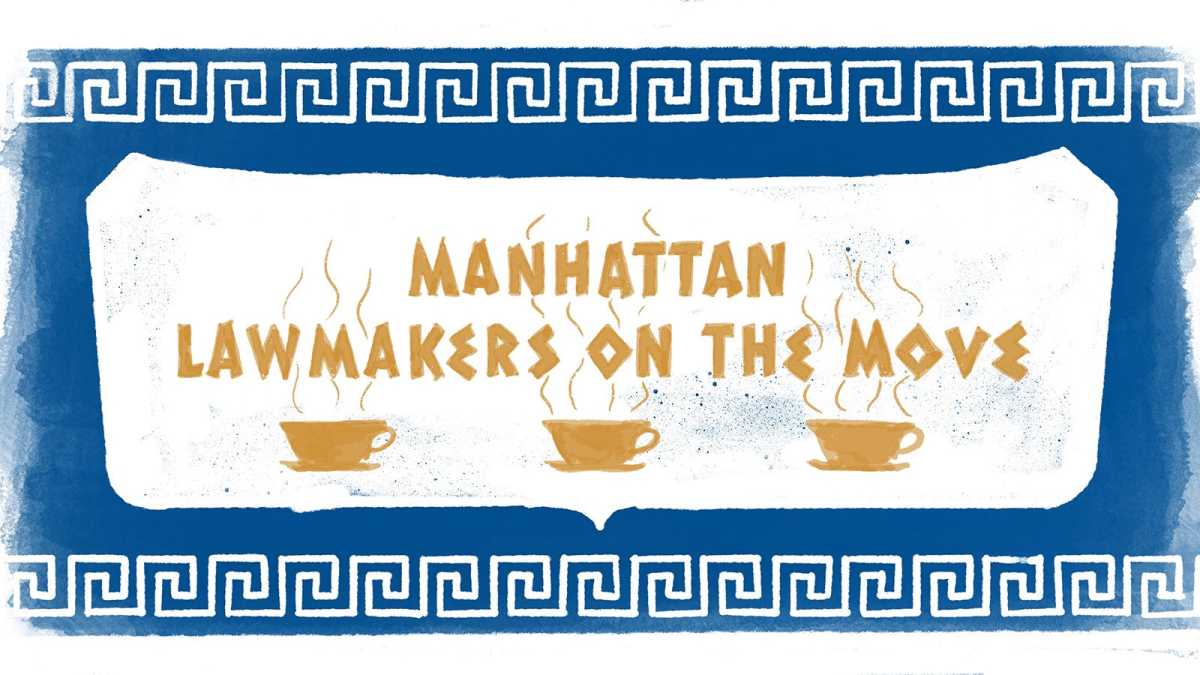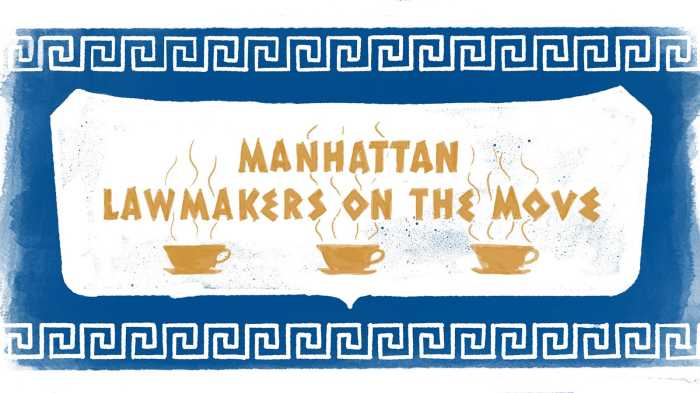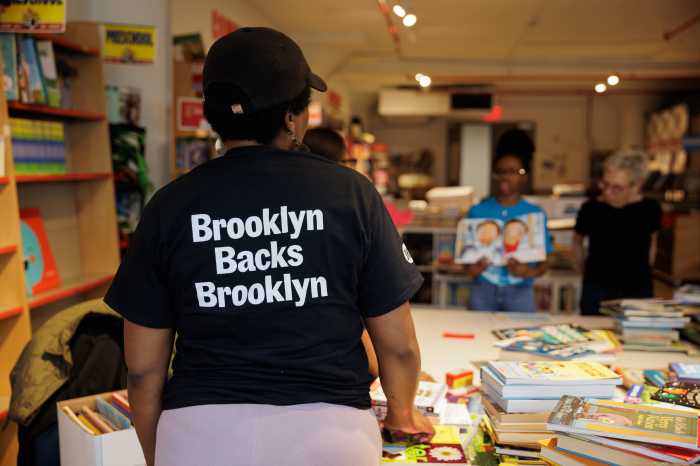Nadler On Trump Blocking McGahn From Testifying Before Congressional Committee
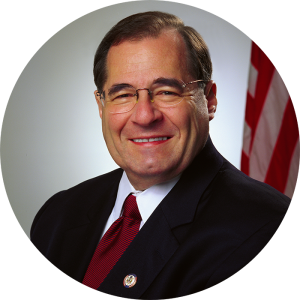
U.S. Rep. Jerrold Nadler (D-Manhattan’s Upper West Side, Morningside Heights, Hell’s Kitchen, Chelsea, Greenwich Village, Soho, Wall Street,Battery Park City; Brooklyn’s Borough Park, Kensington, parts of Bay Ridge, Bensonhurst, Dyker Heights, Red Hook, Sunset Park, Midwood) yesterday decried the White House for directing former White House Counsel Donald F. McGahn II to defy a subpoena for his testimony today as part of the House Judiciary Committee’s investigation into obstruction of justice, corruption, and abuses of power by President Trump and his associates.
“The Mueller Report documents a shocking pattern of obstruction of justice. The President acted again and again—perhaps criminally—to protect himself from federal law enforcement. Don McGahn personally witnessed the most egregious of these acts. President Trump knows this. He clearly does not want the American people to hear firsthand about his alleged misconduct, and so he has attempted to block Mr. McGahn from speaking in public tomorrow,” said Nadler.
“This move is just the latest act of obstruction from the White House that includes its blanket refusal to cooperate with this Committee. It is also the latest example of this Administration’s disdain for law. This identical approach was rejected by a federal court in the Miers case, which held that even senior advisors to the President cannot simply refuse to appear in response to a congressional subpoena. It is absurd for President Trump to claim privilege as to this witness’s testimony when that testimony was already described publicly in the Mueller Report. Even more ridiculous is the extension of the privilege to cover events before and after Mr. McGahn’s service in the White House.
“The Committee will convene as planned tomorrow morning, and Mr. McGahn is expected to appear as legally required,” Nadler concluded
Kallos, Rivera Applaud New Public Spaces Logo


City Council Member Ben Kallos (D-Upper East Side’s Yorkville, Lenox Hill, Carnegie Hill, Roosevelt Island, Midtown East, Sutton Place, El Barrio in East Harlem) and Carlina Rivera (D-East Village, Gramercy Park, Kips Bay, Lower East Side, Murray Hill, Rose Hill) yesterday lauded the city’s announcement of a new logo to be displayed at New York City’s more than 550 plazas, arcades and other Privately Owned Public Spaces (POPS).
The logo was one of 607 logo design submissions from nearly 60 countries in an international design competition. The design matches the City’s goal of creating inviting public spaces with an abundance of amenities, with seating being a priority.
The selected logo depicting playfully-arranged chairs was designed by Emma Reed, a New York-based graphic designer.
A zoning text amendment will be introduced this week to codify requirements for posting of signs that incorporate the new POPS logo. The text will also allow for tables and chairs to be placed in POPS governed by old regulations that did not permit them.
“New York City is an urban maze with an ever-changing landscape,” said Kallos. “Privately Owned Public Spaces, or POPS, offer New Yorkers a reprieve and a place to rest, but if we cannot find them, what is the point? I hope New Yorkers become very familiar with the new logo and that the logo becomes synonymous with having a space to relax and enjoy a quiet moment in the middle of the City.”
“Privately Owned Public Spaces play a central role in Council Districts like mine that have limited green space in high-density environments. It’s great to see a new logo for POPS that reflects the uniqueness and importance of these little oases in our very busy city,” said Rivera.
POPS are the result of City zoning regulations aimed at ensuring that the densest areas of the city offer outdoor and indoor places that are usable by the public without charge.
Espaillat Votes To Pass Equality Act To End Discrimination Against LGBTQ Americans
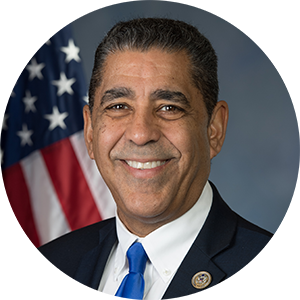
U.S. Rep. Adriano Espaillat (D-Marble Hill, Inwood, Washington Heights, Hamilton Heights, Manhattanville, Morningside Heights, UWS, The Bronx), last week, voted to pass H.R. 5, the Equality Act, to ensure that all LGBTQ Americans are granted the full protections guaranteed by federal civil rights law.
The Equality Act extends anti-discrimination protections to LGBTQ Americans with regard to employment, education, access to credit, jury service, federal funding, housing and public accommodations.
“Through struggles and sacrifices, generations of tireless LGBTQ Americans have worked to forge a more just and equal future for themselves and all Americans,” said Espaillat. “As we prepare to mark Pride Month, it is an honor to join my colleagues to pass the Equality Act to finally, fully end discrimination against LGBTQ Americans in New York and across the country. This landmark legislation reaffirms that freedom from discrimination is a fundamental civil right that belongs to every American, and that no New Yorker or any American should ever lose their job, their home or live in fear simply because of who they are or whom they love.”
Fifty percent of the national LGBTQ community still live in states where, though they have the right to marry, they have no explicit non-discrimination protections in other areas of daily life. Only 21 states have explicit laws barring discrimination based on sexual orientation in employment, housing and public accommodations, and only 20 states have such protections for gender identity. In most states, a same-sex couple can get married one day and legally denied service at a restaurant, be fired from their jobs or evicted from their apartment the next.
The Equality Act amends existing federal civil rights laws to create a nationwide standard that explicitly prohibits discrimination on the basis of sexual orientation and gender identity.


